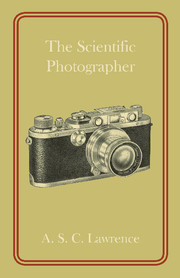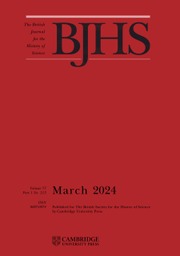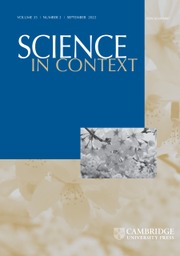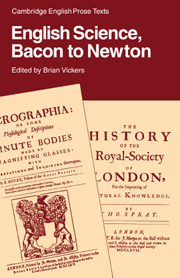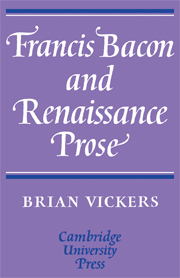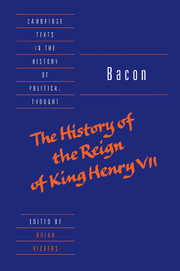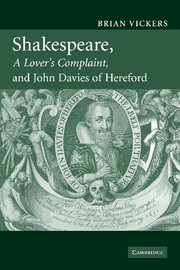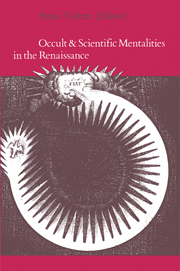
Occult Scientific Mentalities
- Author: Brian Vickers
- Date Published: April 2011
- availability: This ISBN is for an eBook version which is distributed on our behalf by a third party.
- format: Adobe eBook Reader
- isbn: 9780511868900
Find out more about Cambridge eBooks
Adobe eBook Reader
Other available formats:
Paperback
Looking for an inspection copy?
This title is not currently available for inspection. However, if you are interested in the title for your course we can consider offering an inspection copy. To register your interest please contact [email protected] providing details of the course you are teaching.
-
The essays in this volume present a collective study of one of the major problems in the recent history of science: To what extent did the occult 'sciences' (alchemy, astrology, numerology, and natural magic) contribute to the scientific revolution of the late Renaissance? These studies of major scientists (Kepler, Bacon, Mersenne, and Newton) and of occultists (Dee, Fludd, and Cardano), complemented by analyses of contemporary official and unofficial studies at Cambridge and Oxford and discussions of the language of science, combine to suggest that hitherto the relationship has been too crudely stated as a movement 'from magic to science'. In fact, two separate mentalities can be traced, the occult and the scientific, each having different assumptions, goals, and methodologies. The contributors call into question many of the received ideas on this topic, showing that the issue has been wrongly defined and based on inadequate historical evidence. They outline new ways of approaching and understanding a situation in which two radically different and, to modern eyes, incompatible ways of describing reality persisted side-by-side until the demise of the occult in the late seventeenth century. Their work, accordingly, sets the whole issue in a new light.
Reviews & endorsements
'The essays are stimulating and provocative … [an] excellent book.' Brian Easlea, The American Historical Review
See more reviews'The collection provides a valuable introduction to the state of the problem as well as to the work which remains to be done.' Katharine Park, Journal for the History of Astronomy
'A collection of papers which are often intelligent, well-written and admirably clear, and which are nearly always immensely stimulating.' Alastair Hamilton, The Heythrop Journal
'Le présent volume nous présente les actes d'une colloque, édités avec le plus grand soin. Chacune des contributions est une étude approfondie, rédigée par un spécialiste d'une incontestable compétence, et apportant des vues novatrices, à partir d'un retour au texte ou aux sources manuscrites. Alors même que les conclusions des auteurs ne sont pas toujours concordantes, le volume offre un modèle de ce que peut accomplir un travail collectif. Questions bien posées, colloque sans temps morts, travaux qui se complètent, excellente présentation synthétique (par Brian Vickers): le cas est assez rare pour qu'il vaille la peine d'être salué. C'est un livre important qui nous est offert, et dont la lecture s'impose à tous ceux qui étudient le premier essor de la pensée scientifique aux XVIe et XVIIe siècles.' Jean Starobinski, Gesnerus. Swiss Journal of the History of Medicine
'This stimulating and scholarly collection of essays … will be of interest not only to students of the history of science but also to all who have occasion to reflect on the nature of history itself.' British Book News
Customer reviews
Not yet reviewed
Be the first to review
Review was not posted due to profanity
×Product details
- Date Published: April 2011
- format: Adobe eBook Reader
- isbn: 9780511868900
- availability: This ISBN is for an eBook version which is distributed on our behalf by a third party.
Table of Contents
Editor's preface
Introduction Brian Vickers
1. At the crossroads of magic and science: John Dee's Archemastrie Nicholas H. Clulee
2. The occult tradition in the English universities of the Renaissance: a reassessment Mordechai Feingold
3. Analogy versus identity: the rejection of occult symbolism, 1580–1680 Brian Vickers
4. Marin Mersenne: Renaissance naturalism and Renaissance magic William L. Hine
5. Nature, art, and psyche: Jung, Pauli, and the Kepler–Fludd polemic Robert S. Westman
6. The interpretation of natural signs: Cardano's De subtilitate versus Scaliger's Exercitationes Ian Maclean
7. Kepler's attitude toward astrology and mysticism Edward Rosen
8. Kepler's rejection of numerology Judith V. Field
9. Francis Bacon's biological ideas: a new manuscript source Graham Rees
10. Newton and alchemy Richard S. Westfall
11. Witchcraft and popular mentality in Lorraine, 1580–1630 Robin Briggs
12. The scientific status of demonology Stuart Clark
13. 'Reason,' 'right reason,' and 'revelation' in mid-seventeenth-century England Lotte Mulligan
Index.
Sorry, this resource is locked
Please register or sign in to request access. If you are having problems accessing these resources please email [email protected]
Register Sign in» Proceed
You are now leaving the Cambridge University Press website. Your eBook purchase and download will be completed by our partner www.ebooks.com. Please see the permission section of the www.ebooks.com catalogue page for details of the print & copy limits on our eBooks.
Continue ×Are you sure you want to delete your account?
This cannot be undone.
Thank you for your feedback which will help us improve our service.
If you requested a response, we will make sure to get back to you shortly.
×
